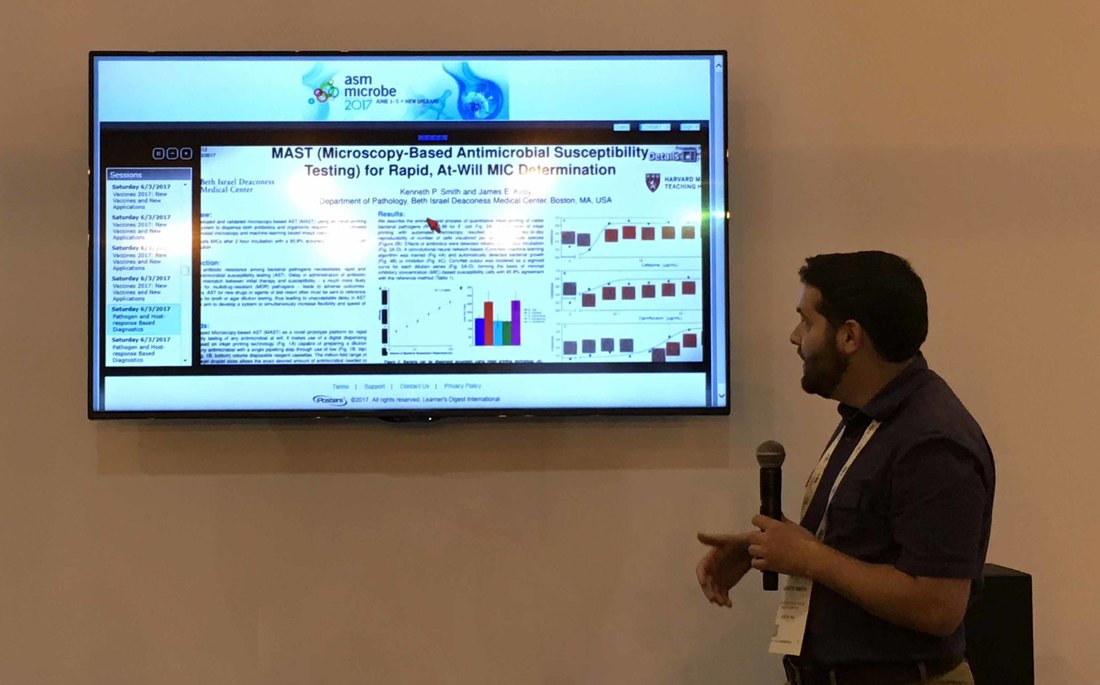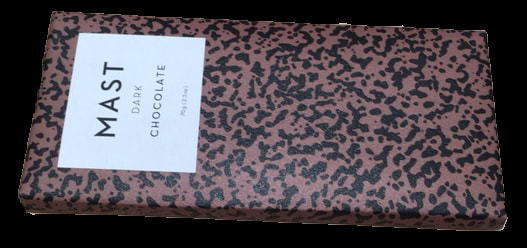|
Our inoculum effect manuscript in the journal Antimicrobial Agents and Chemotherapy highlighted in BIDMC news release.
0 Comments
"The Inoculum Effect in the Era of Multidrug Resistance: Minor Differences in Inoculum Have Dramatic Effect on Minimal Inhibitory Concentration Determination."
The manuscript describes use of D300-based inkjet printing technology to investigate the inoculum effect with a resolution not previously possible. The inoculum effect is the general observation that the minimal inhibitor concentration (in other words level of resistance) of an organism to an antibiotic increases when a higher density of organisms is tested. This is effect is especially prominent for beta-lactam antiibiotics. It is of potential clinical concern during some types of infections when the organism burden is high. Here we explored whether subtle differences in inoculum within the range allowed by current standards can effect the susceptibility testing results that clinical laboratories obtain and provide to clinicians. Our findings for organisms with certain types of multidrug-resistance and very important classes of antibiotics was that these small allowable differences in inoculum could change the MIC determinations and the determination of whether organisms were susceptible or resistant to the antibiotics tested. KP Smith wins an "Outstanding Abstract Award" otherwise known as the OAA, for his experimental work on the inoculum effect.
The award description on the ASM Microbe 2018 awards website: "Sponsored by ASM and determined by the ASM Microbe Program Committee, these awards highlight outstanding abstracts presented by students, residents, or medical/clinical fellows. All abstracts submitted by the deadline will be considered for these awards. Awards will include a cash prize of $200." The laboratory has been fortunate to participate in Harvard Catalyst Reactor Program through the "Big Ideas, Small Features” Pilot Grant Award. A description of the program was recently published last week in Harvard Medical School news titled "Catalyzing Research Innovation."
A description of the supported work can be found at: "Reactor Program Awards Eight New Pilot Grants: Supports researchers with novel solutions to major clinical challenges." Thea was awarded an Academy of Clinical Laboratory Physicians and Scientists (ACLPS) Paul E. Strandjord Young Investigator Research Grant to study antimicrobial synergy against multidrug-resistant pathogens!
"These grants are for research relevant to clinical laboratory science, clinical pathology, and laboratory medicine. Proposed research may be clinical, translational, basic science, quality improvement, and/or regulatory. As this grant program is designed for young investigators, grant recipients must either be in training (residency and/or clinical or research fellowship) OR less than three years after their first faculty appointment (any level) at the time of application" . (quoted from: http://www.aclps.org/grant.html) In the past, there have been only three such awards given nationally in a given year. on Drug Development to Meet the Challenge of Antimicrobial Resistance, September 6-8, 2017. Posters were on apramycin, inkjet printer-based susceptibility testing methodology, and MAST rapid susceptibility technology, respectively.
In her presentation on "Efforts and Resources for Addressing Antimicrobial Resistance," Dr. Jean Patel,, Science Lead, ARX Unit,, National Center for Emerging and Zoonotic Infectious Diseases, Centers for Disease Control and Prevention, describes potential use of digital dispensing inkjet technology for establishing on-demand MIC testing at ALRN labs. Dr. Patel's slide presentation is available from the FDA website.
Smith KP, Richmond DL, Brennan-Krohn T, Elliott HL, Kirby JE. Development of MAST: a Microscopy-Based Antimicrobial Susceptibility Testing Platform. SLAS Technology, In press.
Use of inkjet printing, advanced imaging, and machine learning to achieve reference standard, microdilution antimicrobial susceptibility testing readout in two hours with off-the-shelf supplies. For any antimicrobial at will. Update: Now Published On-Line in SLAS Technology Website! |
Kirby Lab Blog Categories
All
Archives
January 2024
|


 RSS Feed
RSS Feed